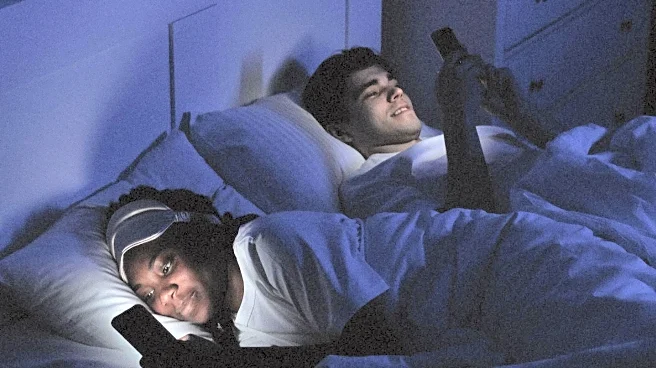What's Happening?
A woman seeking to improve her productivity has turned to Dr. Chris Winter, medical director of the Sleep Medicine Center at Martha Jefferson Hospital in Virginia, for advice on her sleep schedule. Dr. Winter suggests that instead of focusing on becoming a super-early riser, she should maintain a consistent wake and sleep time. Research indicates that irregular sleep schedules can negatively impact health, including lowering HDL cholesterol and increasing the risk of heart disease and type two diabetes. By setting a consistent bedtime and wake time, the woman found herself more productive during the day, despite occasional setbacks like oversleeping on weekends.
Why It's Important?
The advice from Dr. Winter highlights the broader significance of sleep consistency on health and productivity. Maintaining regular sleep patterns can help mitigate risks associated with irregular schedules, such as heart disease and diabetes. For individuals and professionals, this approach can lead to improved daily productivity and overall well-being. The emphasis on consistent sleep routines could influence public health recommendations and personal wellness strategies, encouraging people to prioritize sleep as a critical component of their health regimen.
What's Next?
The woman plans to continue her efforts to maintain a consistent sleep schedule, using tools like the Sleep Cycle app to aid in waking during the lightest sleep phase. Dr. Winter's advice to leave curtains open for natural light exposure in the morning is another strategy she intends to implement. As she adjusts to this routine, she may experience further improvements in productivity and health, potentially inspiring others to adopt similar practices.
Beyond the Headlines
This story underscores the cultural shift towards valuing sleep as an essential part of wellness. As more individuals recognize the impact of sleep on health and productivity, there may be increased demand for sleep-related products and services. This could lead to innovations in sleep technology and a greater focus on sleep education in wellness programs.










